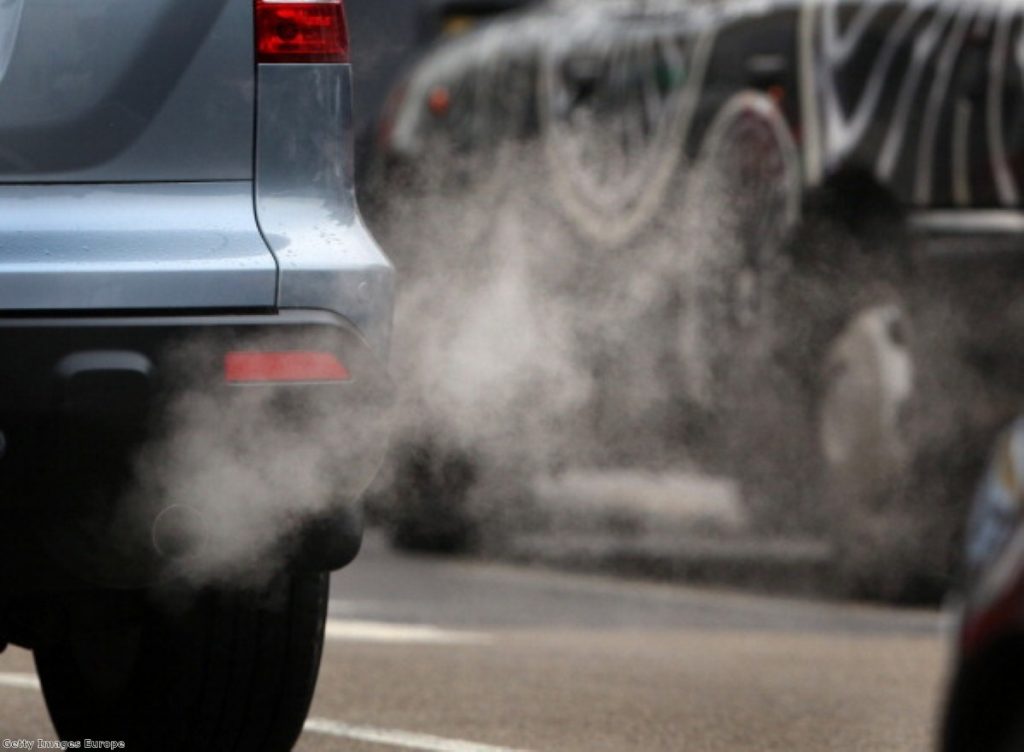EU pollution ruling a breath of fresh air in British politics
The first role of any government is to protect its citizens. In order to do that they must first tackle the greatest risks to our safety before moving onto the smaller risks.
In Britain, our government goes about this in completely the opposite direction. Huge resources are poured into tackling relatively small risks, while far bigger risks are almost totally ignored.
This can be seen most clearly in the government's attitude to the air we breathe.
At the moment politicians of all stripes are competing with each other to tackle passive smoking. Bans on smoking in cars and even public parks are being raised nationally and locally while ever more draconian restrictions are placed on the sale of cigarettes.


Yet the impact of passive smoking is disputed. At worst passive smoking is thought to contribute to the deaths of around 12,000 people a year. This is far too much and it's perfectly reasonable to seek to limit children's exposure to second hand smoke.
But compare the political capital and resources being poured into tackling this issue with the almost total inaction on the far bigger issue of wider air pollution.
Scientists calculate that toxic air pollutants contribute to the deaths of almost 30,000 people every year, more than twice those affected by passive smoke. Over the last ten years a population the size of Nottingham has been wiped out due to air pollution.
And unlike passive smoking, this is an issue that affects everybody. Any parent wishing to protect their kids from tobacco smoke can do so quite easily by simply not lighting up in front of them. Any parent wishing to protect their kids from traffic pollution on the other hand will find their task almost impossible. A pensioner with breathing difficulties can give up cigarettes, but they'll still have to breathe in diesel fumes at the local bus stop.
The case for government action is overwhelming and yet far from tackling the problem, our politicians continue to pretend it simply doesn't exist. Despite repeated orders to take urgent action or face huge EU fines, the government has instead sought to ask for repeated extensions to the EU deadline. As a result a problem that was originally meant to have been solved by 2010 is now not even set to be solved by 2030.

Luckily this criminal neglect looks to be finally coming to an end. Yesterday a small group of campaigners achieved a huge victory in the European courts.
The European Court of Justice ruled that the UK must take urgent action to tackle dangerous levels of air pollution. The case, brought by ClientEarth, will now go the UK supreme court which is likely to rule that the government should impose dramatic measures to finally make our air safe to breathe. These measures could include bans on the most polluting vehicles and new low-emission zones across the country.
ClientEarth lawyer Alan Andrews told Politics.co.uk that the ruling means the UK will finally be forced to act.
"Thousands of people die because of air pollution every year. This ruling will save lives by forcing the government to finally take this issue seriously. They will now have to come up with an urgent plan to rid our towns and cities of cancer-causing diesel fumes."
If the UK government ignores this new legal precedent they could face the prospect of huge EU fines.
"This is not something we want to see happen," Andrews told me. "We would far rather that money was spent on solving the problem."
But far from solving the problem right now the government appears intent on making it even worse. In recent weeks the coalition announced plans to spend billions of pounds on widening and building new roads across the country. This policy will undoubtedly induce more diesel-emitting vehicles onto the roads, making the problem of the UK's toxic air pollution even worse. Meanwhile Labour's only reaction to this news has been to insist that the government should be spending even more on new roads.
If those same politicians had instead called for cigarettes to be made more widely available they would have been widely condemned. Yet our politicians regularly call for lots more roads to be filled with lots more polluting cars and don't meet even the slightest criticism.
This is a symptom of a far wider problem in British politics. Britain remains a country where politicians obsess over tiny problems like 'welfare tourism' while all but ignoring huge issues that affect millions of people everyday.
Yesterday's EU ruling is the first step in changing that. On the issue of pollution at least, British politics may finally be brought back into perspective.

